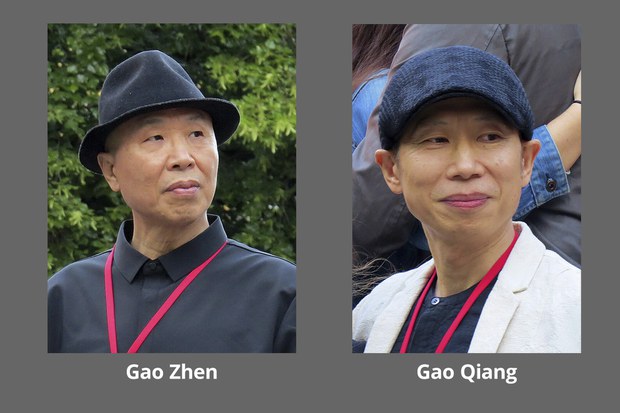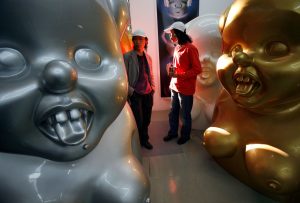Chinese artist detained for ‘insulting’ Mao sculptures
2 min read

Chinese artist Gao Zhen has been detained on allegations of “insulting revolutionary heroes and martyrs,” according to his brother and artistic collaborator, Gao Qiang. The Gao Brothers are renowned for their provocative sculptures that critique Mao Zedong, the founder of the People’s Republic of China, and his regime.
Gao Zhen, who had relocated to the United States two years ago, was in China visiting family when he was arrested in Hebei province. His brother revealed the news through a Facebook post, noting that around 30 police officers raided their art studio in Sanhe City on August 26. During the raid, authorities confiscated several artworks in addition to detaining Gao Zhen.
The Gao Brothers have garnered international attention for their daring and controversial works. One notable piece, “Mao’s Guilt,” features a bronze statue of Mao Zedong kneeling in remorse. Other provocative sculptures include “The Execution of Christ,” which depicts Jesus facing a firing squad composed of Mao statues, and “Miss Mao,” a series of statues featuring Mao with exaggerated features.
Mao Zedong, often referred to as Chairman Mao, was a pivotal figure in the establishment of Communist China in 1949. His leadership through the Cultural Revolution of the 1960s and 1970s was marked by widespread upheaval and the deaths of over a million people. During this tumultuous period, the Gao Brothers’ father was labeled a class enemy and taken to an undisclosed location where he eventually died. This personal history has deeply influenced the brothers’ work and their critique of Mao.

In 2021, China introduced a new criminal code criminalizing the “insult” of revolutionary figures, reflecting a broader campaign under President Xi Jinping. This law imposes a penalty of up to three years in prison. Despite this, Gao Zhen had managed to evade severe consequences from Chinese authorities by holding private or secret exhibitions of his work.
Gao Zhen’s decision to emigrate to New York in 2022 was driven by several factors, including his son’s impending school age and what his brother described as the “deteriorating environment in China.” Gao Zhen had secured permanent residency in the United States, seeking both a safer environment for his family and greater creative freedom.
Following Gao Zhen’s detention, several prominent Chinese artists and cultural figures have publicly called for his release. An open letter has been circulated, denouncing the detention as a regressive move reminiscent of the Cultural Revolution’s oppressive tactics. The letter criticizes the Sanhe police department for treating Gao Zhen’s artistic expressions as criminal evidence.
The Sanhe public security bureau has yet to provide a response to these claims. As the situation develops, the art community and international observers continue to watch closely, highlighting the ongoing tensions between artistic expression and political repression in China.